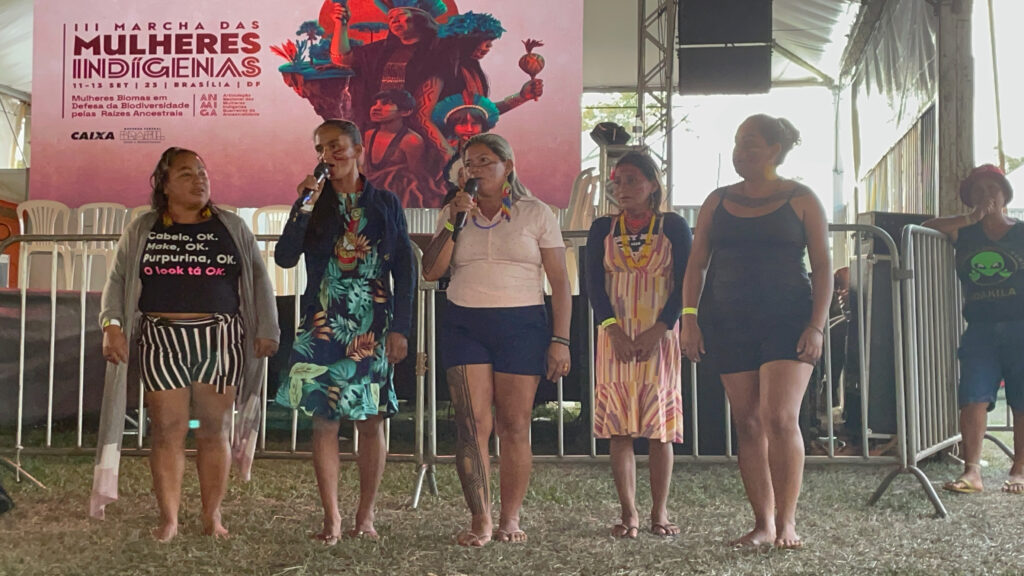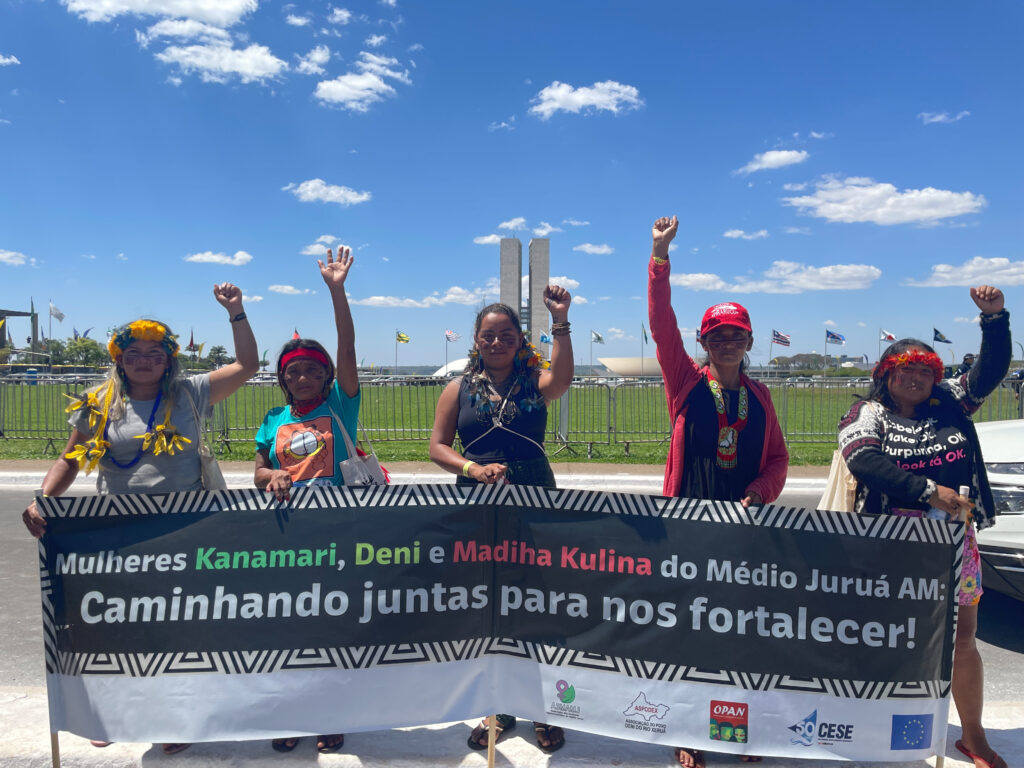By Talita Oliveira | OPAN
8,000 women from 247 indigenous peoples, originating from all biomes and different Brazilian territories, were gathered in the third edition of the Indigenous Women’s March, held from September 11 to 13, in Brasília (DF). with the theme “Biomes women in defense of biodiversity from their ancestral roots”, they claimed the end of gender violence and the maintenance of the constitutional rights of the original peoples.
Organized by National Articulation of Indigenous Women Warriors of Ancestry (Anmiga), the event promoted dialogues, book launches, fashion shows, cultural presentations, in addition to a great march that traveled through the streets of the federal capital. But, despite the great relevance for the indigenous movement, some peoples had not yet participated in previous editions of the event.
This is the case of the Deni, Kanamari and Madiha, from the Middle Juruá region, in Amazonas, who participated in the mobilization for the first time. The decision to participate in the event came from assemblies organized by the indigenous associations and is the result of a process of encouraging the empowerment of indigenous women, fostered by several initiatives, including the Roots of Purus, a project carried out by OPAN and sponsored by Petrobras.
From Middle Juruá to Brasilia
The delegation of the Middle Juruá was composed of five women from three indigenous lands: Kulina Indigenous Land of the Uerê River (Matatibem), Kanamari Indigenous Land of the Juruá River and Deni Indigenous Land. Due to the long distances, the women started the trip to Brasília two weeks before the start of the march. The path taken involved traveling, by car, boat and plane.

From the villages to the city of Carauari, a municipality about 790 kilometers from Manaus, it took more than 20 hours in small canoes, the only viable vessel due to the low level of the rivers. From Carauari, they followed on a small plane for two hours to Manaus and, finally, a three-hour flight to the federal capital.
“The path to come here[Brasília]It was very difficult. It’s not easy for any of us to leave, leave their children, their family members, to move until they get here. Even with difficulty, we arrived and got here is an honor. Listening to the testimony of parents makes us stronger”, says Adriana Ferreira, from the Madiha people, who made up the delegation.
Dialogues and Corners
The first two days of the event were dedicated to important dialogues and articulations between indigenous women and also with representatives of the government. Ministers Sonia Guajajara, from the Ministry of Indigenous Peoples were present; Marina Silva, from the Ministry of the Environment and Climate Change; Aparecida Gonçalves, from the Ministry of Women; and Anielle Franco, from the Ministry of Racial Equality, in addition to the president of the National Foundation for Indigenous Peoples (Funai), Joenia Wapichana.
In the interval between the dialogues, presentations of songs and traditional dances of the various indigenous peoples present in the march were held. The women of the delegation of Médio Juruá took the opportunity to echo the corners of the Deni, Kanamari and Madiha peoples, thrilling the people who filled the Central Tent.

III March of Indigenous Women
The most awaited moment of the event was the great march. More than 8,000 women walked together from the National Arts Foundation (Funarte) to Praça das Bandeiras, in a peaceful demonstration for the defense of their rights.

Despite the intense heat, Adriana, Djiwiwi, Marywam, Tinani and Jayrê walked the entire path of the march, attentive to the demands and wielding the banner with the phrase “Women Kanamari, Deni and Madiha Kulina from the midfielder Juruá AM: Walking together to strengthen us!”, representing the union that was being built during the days of coexistence at the event.
Jayrê Kanamari, vice president of the Kanamari People’s Association of Carauari (Aspokac), explains that it was an important moment of mutual learning among women. “Just as I learned from them, they also learned from me. Let’s fight for our rights and never give up. We are united!” he evaluated.
Tinani Varasha, who is the first woman in a leadership position in a village of the Deni people, left inspired to encourage other women. “I want to put the leadership ladies. I’m going to say: now we’re all together, now we’re with strength!”, he concluded, excited.
